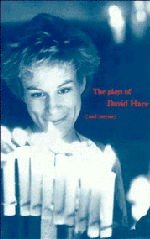Book contents
- Frontmatter
- Contents
- Acknowledgements
- Introduction: a statement of departure
- 1 The sixties revolution
- 2 Stepping into the past
- 3 A turning over
- 4 The people's war and peace
- 5 Sense of an ending
- 6 The foundry of lies
- 7 Dreams of leaving
- 8 Drawing a map of the world
- 9 All our escapes
- 10 Painting pictures
- 11 The moment of unification
- 12 Strapless
- 13 Heading home?
- 14 Stepping into the future
- Conclusion: a statement of arrival
- Notes
- Select bibliography
- Index
4 - The people's war and peace
Published online by Cambridge University Press: 10 May 2010
- Frontmatter
- Contents
- Acknowledgements
- Introduction: a statement of departure
- 1 The sixties revolution
- 2 Stepping into the past
- 3 A turning over
- 4 The people's war and peace
- 5 Sense of an ending
- 6 The foundry of lies
- 7 Dreams of leaving
- 8 Drawing a map of the world
- 9 All our escapes
- 10 Painting pictures
- 11 The moment of unification
- 12 Strapless
- 13 Heading home?
- 14 Stepping into the future
- Conclusion: a statement of arrival
- Notes
- Select bibliography
- Index
Summary
Picking up the dual inheritance of Brassneck and Angus Calder's The People's War, Licking Hitler and Plenty were written together as companion pieces for showing on television and at the National Theatre respectively in 1978. Coinciding with Hare's clear articulation of his aims as a writer in his lecture at King's College Cambridge, and the sustained dispossession of the tactics of the theatrical Left which it contained, it is at this point that Hare's history plays reach maturity. What both plays share, and share with works by several of Hare's contemporaries, is the use not only of history to find a perspective on the present but of women protagonists, both of which were set to continue in later work. Just as Hare's use of history can be seen as an evasion and the disguise of a deep nostalgia, so – although a major contribution to the British stage – his presentation of women is deeply problematic.
Licking Hitler: a war on two fronts
When it was first screened on BBC1 on 10 January 1978 Licking Hitler met with a level of acclaim previously unknown to Hare in Britain, and won for him the BAFTA award for Best Single Play of 1978. It is still regarded by many as his finest work. In an often praised introductory sequence, Hare introduces the main characters, the context of the war and the country house setting and conveys a complex set of signals about what is to come.
- Type
- Chapter
- Information
- The Plays of David Hare , pp. 55 - 74Publisher: Cambridge University PressPrint publication year: 1995



